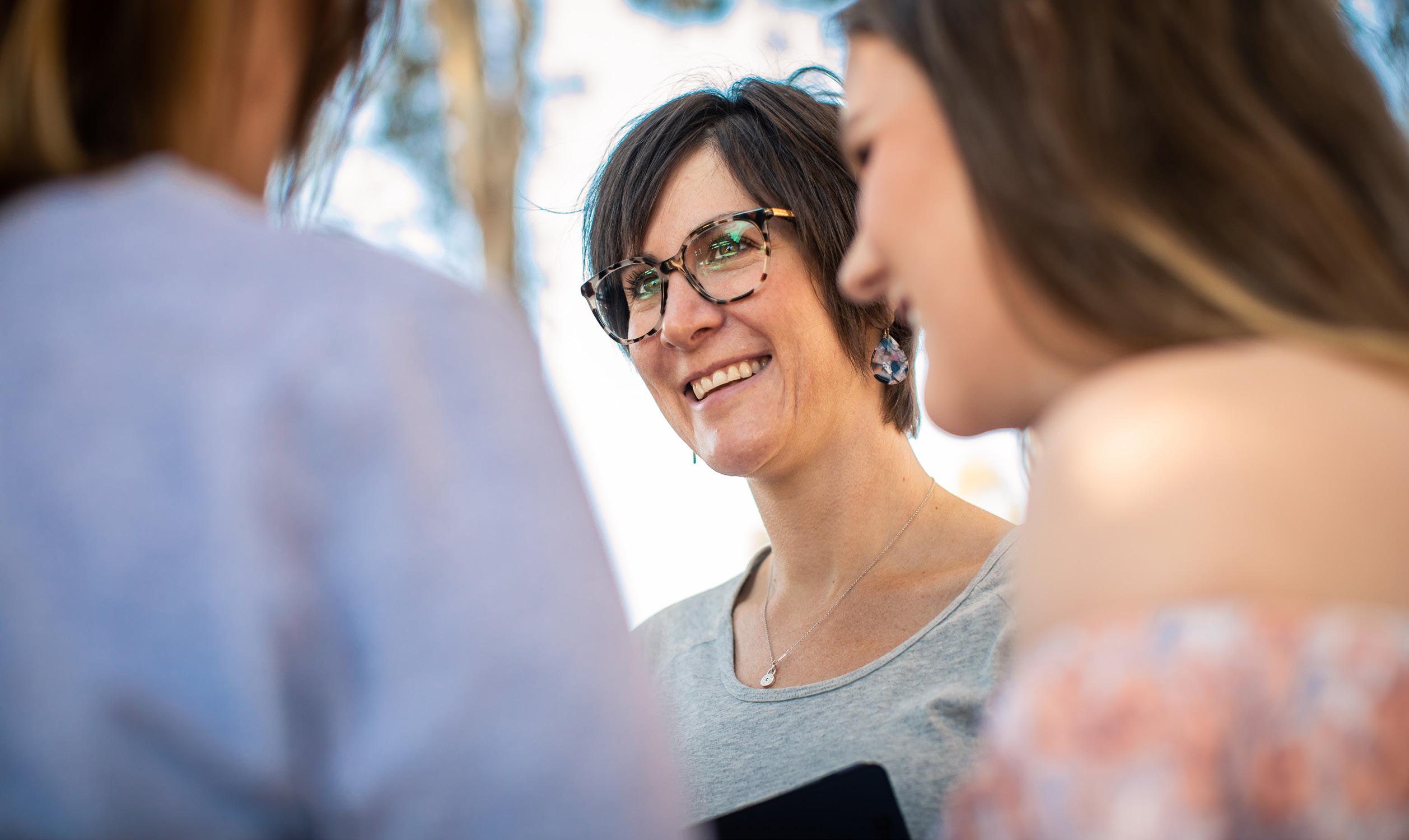
3 minute read
Researching our COVID-19 recovery
There’s no denying it, the world has been turned upside down by COVID-19. The pandemic has already had a devastating effect on families, communities and the economy. While what’s to come is still unknown, there is much to be determined about the impact of COVID-19 and how we can rebuild on the other side. Responding to the devastation of the pandemic, in April Charles Sturt University announced $200,000 to fund research grants for studies focused on understanding the impacts of COVID-19 on the health, wellbeing, business performance, communities and economy of Australia. Deputy Vice-Chancellor (Research and Engagement) Professor Heather Cavanagh said research is one way the university can help generate new knowledge and deliver solutions for this unprecedented event. “Charles Sturt University is well-placed to play a role in helping to reduce the devastating impact of COVID-19 on our businesses, community and families. “This money will allow researchers to play an active role in ensuring the long-lasting effects of the virus are minimal and that our economy can recover.” In total 12 projects received funding to research issues such as mental health and stress impacts, metabolic and inflammatory health, policy assessment, suicidal ideation, racism, educational challenges, mobile and online security, and national security.
Lend your support
Reflecting the readiness for people to play their part in helping to cope with COVID-19, the university received more applications for funding than it was available support, leaving 52 studies into areas such as health and wellbeing, economic recovery, education, technology and security unfunded. To address this demand, Charles Sturt University Advancement has established a fund for philanthropic support of these research projects. Director of Advancement Sarah Ansell said every contribution can lead to a profound effect on coping responses both during the pandemic and in recovery. “Right now, there are many and varied COVID-19 efforts worthy of our collective support and it’s not always easy to know where your dollar will have the most impact. Research is aimed at solving problems and the projects put forward will have broad implications for entire communities. We urge our alumni and communities to consider donating to get behind potentially life-changing and community-saving research. We’re all in this together.”
Research spotlight: COVID-19 related racism and healthcare in regional areas
People from culturally and linguistically diverse (CALD) backgrounds living in regional Australia are often faced with biases and barriers to accessing everyday services, such as healthcare. During a pandemic, that can present additional barriers with serious consequences. Professor of Nursing (Research) Julian Grant and Dr Jessica Biles from the Charles Sturt School of Nursing, Midwifery and Indigenous Health received $30,000 to investigate the connection between COVID-19 related racism and healthcare access in four regional NSW communities. Focusing on the experiences of people from CALD backgrounds living in Albury-Wodonga, Wagga Wagga, Griffith and Young, the study will investigate whether these people have experienced racism during the pandemic, and if this race-based discrimination affected their healthcare access and equity. Julian said there is evidence that CALD communities face additional barriers when it comes to healthcare, and she hopes this study will inform future pandemic healthcare efforts. “We want our research to identify whether the COVID-19 pandemic introduced additional barriers for CALD people in regional areas in terms of their access to healthcare.
“One of the important barriers our research will investigate is racism. There is a lot of evidence that social marginalisation and experiences of racism leads to further reductions in accessing timely healthcare and reduced health outcomes. “By investigating how these additional COVID-19-related barriers to healthcare have affected CALD people’s healthcare access and equity during the pandemic, it provides an opportunity to identify and redress these barriers for future pandemics.” The research will also look at whether the application of the federal government’s population-based COVID-19 strategies and measures to manage the pandemic have increased experiences of racism and affected healthcare access and equity for CALD people during the pandemic. The researchers are working with a number of groups to conduct the research, including Multicultural Council of Wagga Wagga and Federation of Ethnic Communities Councils of Australia. The research project commenced in June and is expected to be completed by December 2020.










